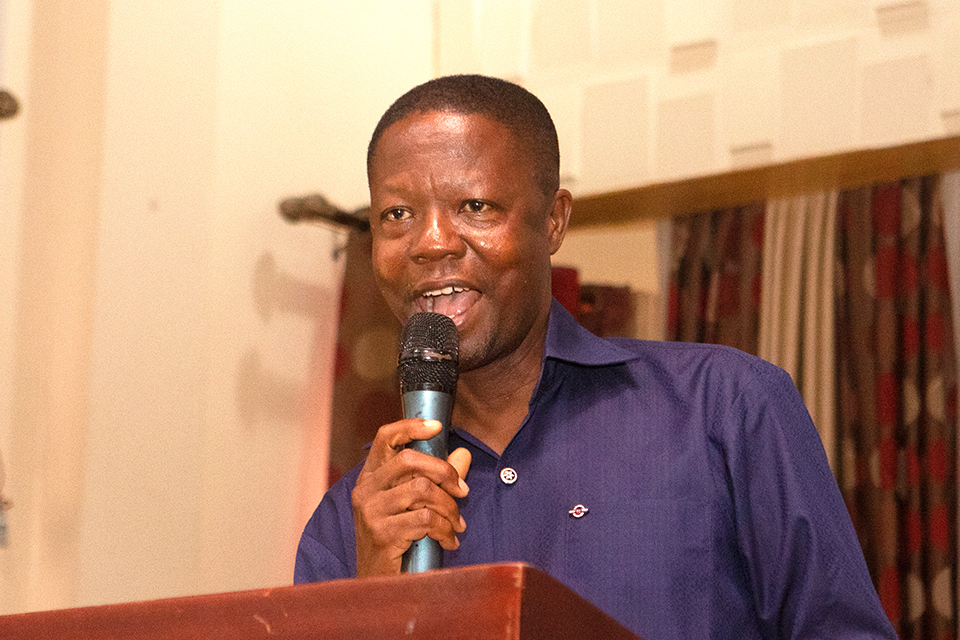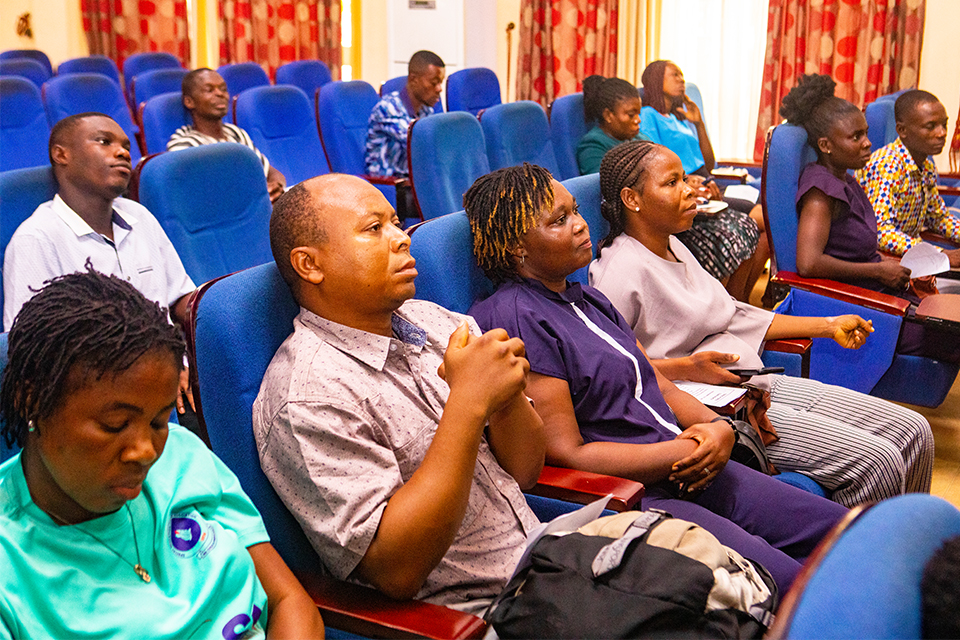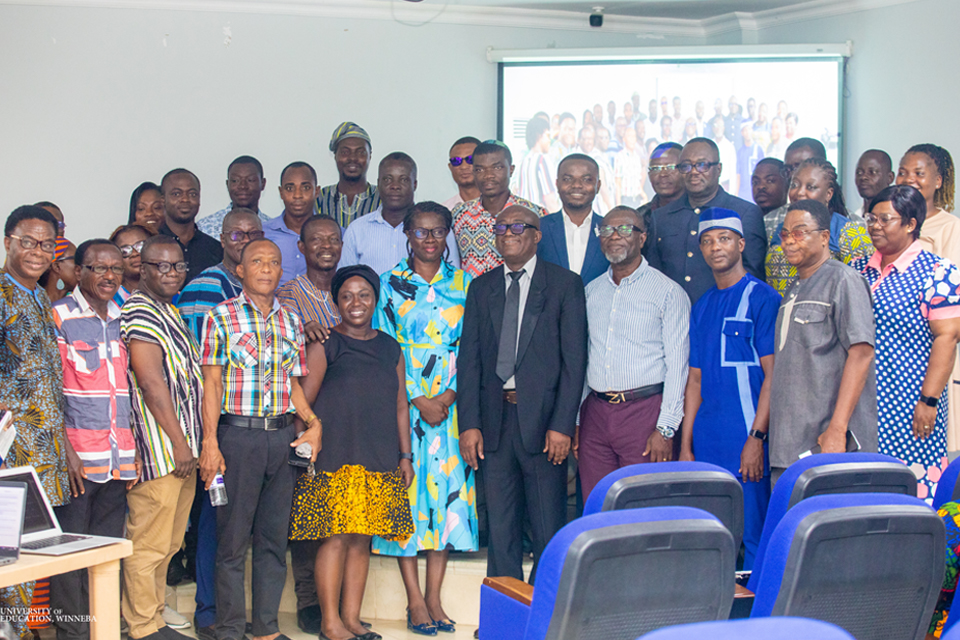FABSE-UEW Fosters Global-Local Connection in Educational Research

The Faculty of Applied Behavioural Sciences Education (FABSE) at the University of Education, Winneba (UEW) has held its second postgraduate conference with a focus on global perspectives and local solutions in educational research.
The hybrid event, themed “Global Perspective, Local Solutions: Cultural Adaptation and Innovations in Educational Research Methodologies,” brought together academic leaders, scholars and international experts to exchange ideas, innovate and share best practices at the North Campus Mini-Conference Room and via virtual platform, Zoom.

Prof. Clement Ali, Dean of FABSE, praised the resilience and growing influence of the faculty, describing the event as a celebration of research-driven progress. “This conference strengthens our significance in teaching, research and service,” he said.
He recounted the faculty’s recent successes, including increased graduate research output and international academic collaborations. He underscored that the mission of FABSE aligns with UEW’s vision to be an internationally reputable institution for teacher education and research.
Reflecting on FABSE’s journey, Prof. Ali noted that last year’s conference catalysed tangible academic achievements — including the graduation of 52 students, five of whom were staff who had presented papers. “Today, we aim to unlock global perspectives and adapt them into meaningful localised innovations for our schools and communities,” he said, urging presenters to translate global strategies into local solutions with generational impact.

Representing the Vice-Chancellor as chairman of the conference, Prof. Frimpong Kaakyire Duku, Acting Pro-Vice Chancellor of UEW, commended the initiative for its timely relevance in an era of shifting cultural dynamics. With a touch of wit and philosophical reflection, he highlighted the conference's potential to recalibrate how researchers approach education. “Culture is in flux,” he observed, pointing to the evolving discourse on adaptation and identity in a globalised world.
He challenged participants to move beyond theoretical knowledge, saying, “Ours is to add to knowledge and to test it. Let us create theories that respond to changing contexts.”
Prof. Duku stressed the need for grassroots-level engagement in research. “Research must not only come from literature found in libraries but from lived experiences and community voices. That is the true essence of localised authentic inquiry,” he remarked.

The highlight of the conference was a deeply insightful presentation by Prof. Chloe Marshall from University College London (UCL), a leading voice in the fields of open science and participatory research. In a meticulously detailed session, Prof. Chloe Marshall explored two transformative trends in academia — Open Science and Stakeholder Engagement — positioning them as crucial tools for enhancing research integrity, transparency and impact.
“Open Science is about making knowledge free and accessible. It fosters trust and accelerates progress,” she explained. Using the Open Science Framework as a case study, she walked the audience through the life cycle of transparent research — from pre-registration and data sharing to reproducibility and open access publishing.
Prof. Chloe Marshall also underscored the importance of engaging stakeholders, particularly in educational research where local context is critical. “We must do research not on or for communities but with them,” she emphasised, citing participatory approaches used in autism education research in the UK.

The presentation resonated with many participants, especially young faculty and graduate researchers eager to innovate within African contexts. Prof. Chloe Marshall provided both encouragement and practical pathways for integrating global best practices into localised research agendas.
As the hybrid conference wrapped up — attended both in person and virtually — participants were left with a clear charge: blend global insights with local wisdom to craft culturally responsive and innovative research methodologies that can shape the future of education across Ghana and beyond.











